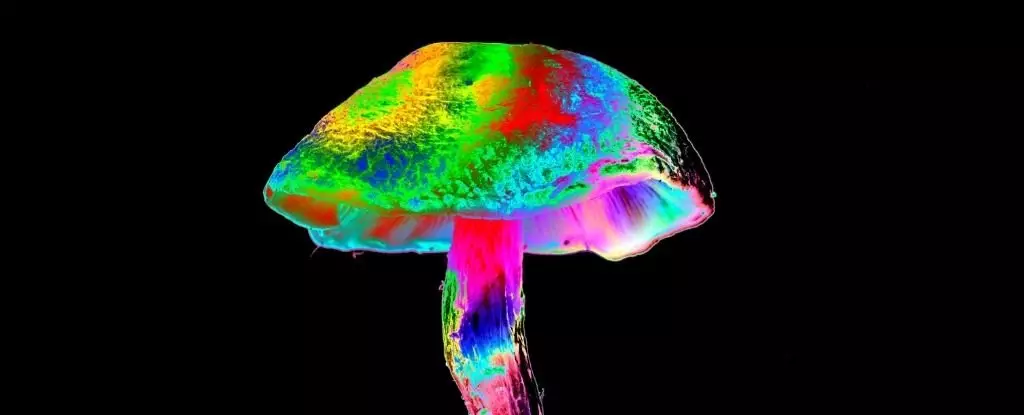In recent years, there has been a surge of interest in the potential therapeutic benefits of psychedelics. These powerful substances have the ability to alter perception, mood, and various mental processes. This has sparked curiosity both within scientific circles and among the general public. Researchers are exploring how psychedelics can be used to treat a wide range of mental health disorders. However, it is crucial to understand how these substances interact with different mental health conditions, especially personality disorders.
A recent study conducted by researchers at Imperial College London delved into the intricate relationship between psychedelics and mental health. The study collected data from 807 individuals who had used psychedelics in various settings, ranging from recreational to therapeutic. Participants’ mental wellbeing was measured before and after using psychedelics using the Warwick-Edinburgh mental wellbeing scale. The researchers found that only 16% of participants reported an overall negative response to psychedelics. However, a significant portion of these negative experiences (31%) were reported by individuals with a history of personality disorders.
It is important to note the limitations of the study conducted by Imperial College London. The researchers relied on self-reported data, which can be subject to bias. Additionally, the study had a small number of participants and a high dropout rate of 56%. These factors could have skewed the results of the study. Furthermore, the lack of a control group for comparison and variations in the types and dosages of psychedelics used are additional limitations. Lumpings different personality disorders together in the study may overlook specific risks associated with each disorder.
The study highlighted the potential risks of using psychedelics for individuals with personality disorders. Different disorders may respond in unique ways to psychedelic substances. For instance, individuals with histrionic personality disorder or borderline personality disorder may experience heightened emotional instability or fear. Meanwhile, individuals with narcissistic personality disorder may struggle with the introspective nature of psychedelics. It is essential to consider these risks when exploring the therapeutic potential of psychedelics for mental health.
Due to the limitations of the study, it is crucial to approach the findings with some skepticism. While the study recognizes the potential benefits of psychedelics for mental health, it emphasizes the importance of careful screening for personality disorders. Using psychedelics safely and effectively requires a personalized approach, especially for vulnerable individuals. As the field of psychedelic therapy continues to expand, it is essential to conduct more rigorous research, such as controlled trials, to assess the therapeutic effects of these substances accurately.
The relationship between psychedelics and personality disorders is complex and multifaceted. While these substances hold promise for treating mental health conditions, including personality disorders, it is essential to approach their use with caution and careful consideration. By conducting rigorous research and implementing personalized approaches to psychedelic therapy, we can ensure that these powerful substances are used safely and effectively for all individuals.


Leave a Reply